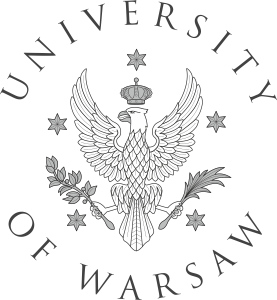The Centre of New Technologies invites to a seminar by
Prof. Józef Dulak
Head of Department of Medical Biotechnology, Faculty of Biochemistry, Biophysics and Medical Biotechnology, Jagiellonian University, Kraków
Title: New mechanisms of muscles injury and repair
Date: March 6th, 2020 (Friday)
Time: 12:00 p.m.
Venue: Centre of New Technologies, Banacha 2C, Lecture Hall 0142 (Ground floor)
Host: prof. Krzysztof Kobielak
Skeletal muscles efficiently regenerate after injury while heart does not and destroyed cardiomyocytes are replaced by the fibrotic scar. Regeneration of skeletal muscles is driven by the satellite cells, the bona fide stem cells, which upon activation start to proliferate and differentiate, fuse and finally form the muscular fibers. Impairment of muscle regeneration develops with age and is also associated with the inherited muscular dystrophies. Among them the Duchenne muscular dystrophy (DMD) is the most common, still unfortunately incurable. The lack of dystrophin results in the aggravated muscles injury which do not efficiently regenerate and the affected boys loose ambulation in the early teenage and die due to heart failure mostly in the 3rd decade of life.
Restoration of dystrophin in muscles and heart is an obvious but very challenging and so far, not successful way to treat DMD. However, modulation of inflammation linked with muscle and heart damage can ameliorate disease conditions. We have shown that disturbance of muscle regeneration is linked with impairment of satellite cells differentiation and the lack of additional genes can either ameliorate or aggravate the absence of dystrophin. We revealed that different pathways, including Nrf2, heme oxygenase-1 and mir-378 are promising targets to modulate disease progression through influence on satellite cells, inflammation, fibrosis, angiogenesis and metabolism. Employing on these mechanisms and on the induced pluripotent stem cells-based technology offers the chance for better understanding of heart failure in DMD patients and development of treatments approaches relying on iPSC-derived cardiomyocytes and pharmacological compounds.
Supported by Maestro (2013-2018 and 2019-2024), OPUS (2014-2017) and Harmonia (2016-2019) grants from the National Science Centre.

